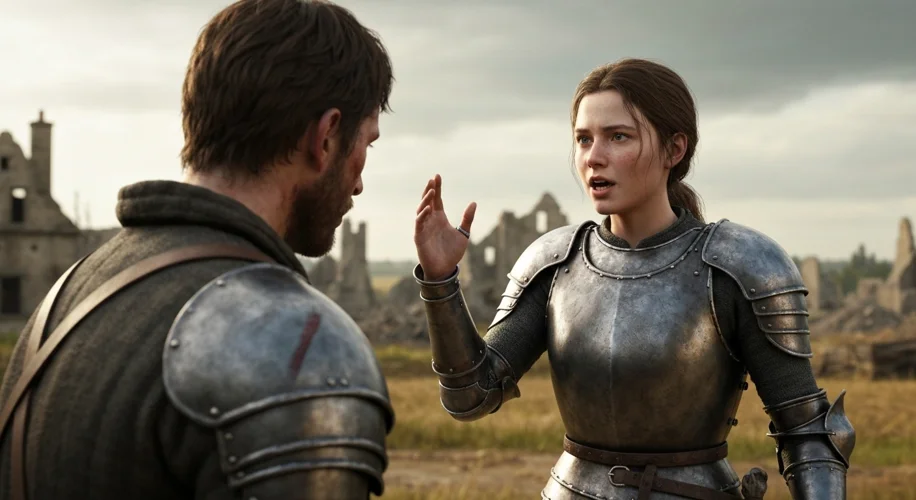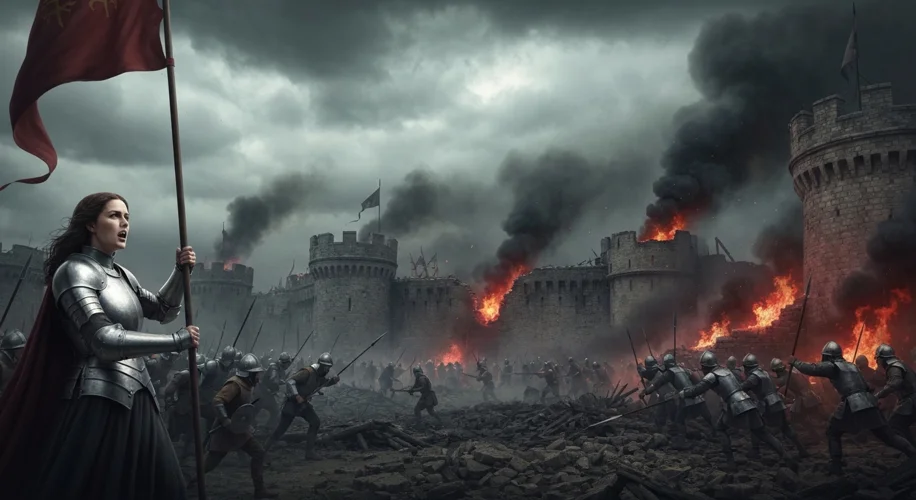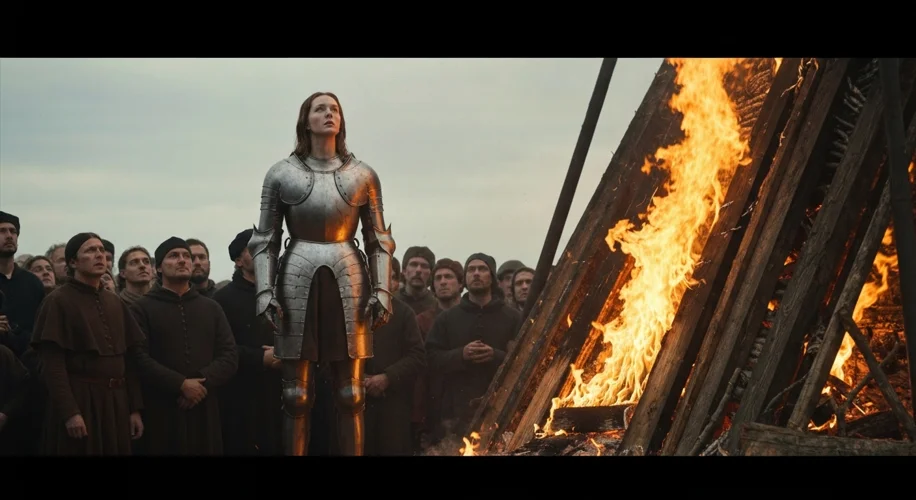The year is 1429. France, a nation fractured and bleeding, teeters on the brink of collapse. The English, with their Burgundian allies, hold much of the land, and the Dauphin Charles, the uncrowned king, has retreated to the safety of Bourges. The once-mighty Hundred Years’ War has become a slow, agonizing death for the French.
Into this despair emerges a figure as improbable as she is extraordinary: a young peasant girl named Joan, from the obscure village of Domrémy. She was barely seventeen, illiterate, and possessed of no military training. Yet, she claimed to hear the voices of saints – Michael, Catherine, and Margaret – urging her to save France and see the Dauphin crowned.

Joan’s arrival at the Dauphin’s court in Chinon was met with disbelief and suspicion. How could a peasant girl, a woman, claim to speak for God and lead armies? Yet, there was an undeniable force about her. She famously recognized Charles even when he was disguised among his courtiers, a feat that astonished the assembled nobility and began to chip away at their skepticism. After rigorous theological examinations that found no fault in her, and a period of training and equipping, Joan was granted permission to accompany a relief force to the besieged city of Orléans.
The city of Orléans, strategically vital, had been under siege by the English for months. Its fall would have been a catastrophic blow to French morale and a significant step towards English dominion. Joan, carrying her white banner emblazoned with the fleurs-de-lis and the names of Jesus and Mary, entered the city on April 29, 1429. Her arrival was like a thunderclap. The soldiers, weary and demoralized, were infused with new hope. The citizens, seeing her unwavering faith and courage, found their own spirits renewed.
Joan did not merely inspire; she actively participated in the fighting. Within days, she had led assaults on English fortifications, rallying the troops with her presence and her infectious bravery. On May 7, 1429, the English forces, accustomed to an easy victory, were routed. Orléans was saved. This victory, named the “Miracle of Orléans,” was a turning point in the Hundred Years’ War. It shattered the myth of English invincibility and ignited a resurgence of French national pride.

Joan’s military success did not end at Orléans. She continued to lead the French army, culminating in the pivotal Battle of Patay on June 18, 1429, a crushing defeat for the English that opened the path to Reims, the traditional site for the coronation of French kings. On July 17, 1429, Charles VII was crowned King of France, with Joan standing proudly beside him, her mission seemingly accomplished.
However, Joan’s meteoric rise was not destined for a peaceful conclusion. Her capture by Burgundian forces in May 1430, and subsequent sale to the English, sealed her fate. The English, eager to discredit Charles VII and eliminate this symbol of French resistance, put Joan on trial for heresy and witchcraft in Rouen. The trial was a travesty of justice, manipulated by her accusers. Despite her eloquent defenses, she was ultimately condemned and, on May 30, 1431, burned at the stake at the age of nineteen.

The death of Joan of Arc did not extinguish the spirit she had awakened. The Hundred Years’ War continued, and with renewed determination, France eventually drove the English out. Twenty-five years after her execution, a posthumous retrial declared Joan innocent and a martyr. Centuries later, in 1920, she was canonized as a saint by the Catholic Church.
Joan of Arc remains an enduring symbol of faith, courage, and national identity. Her brief, tumultuous life, marked by divine visions and battlefield triumphs, forever altered the course of French history, proving that even the most unlikely of individuals, armed with conviction, can ignite a nation’s soul.

